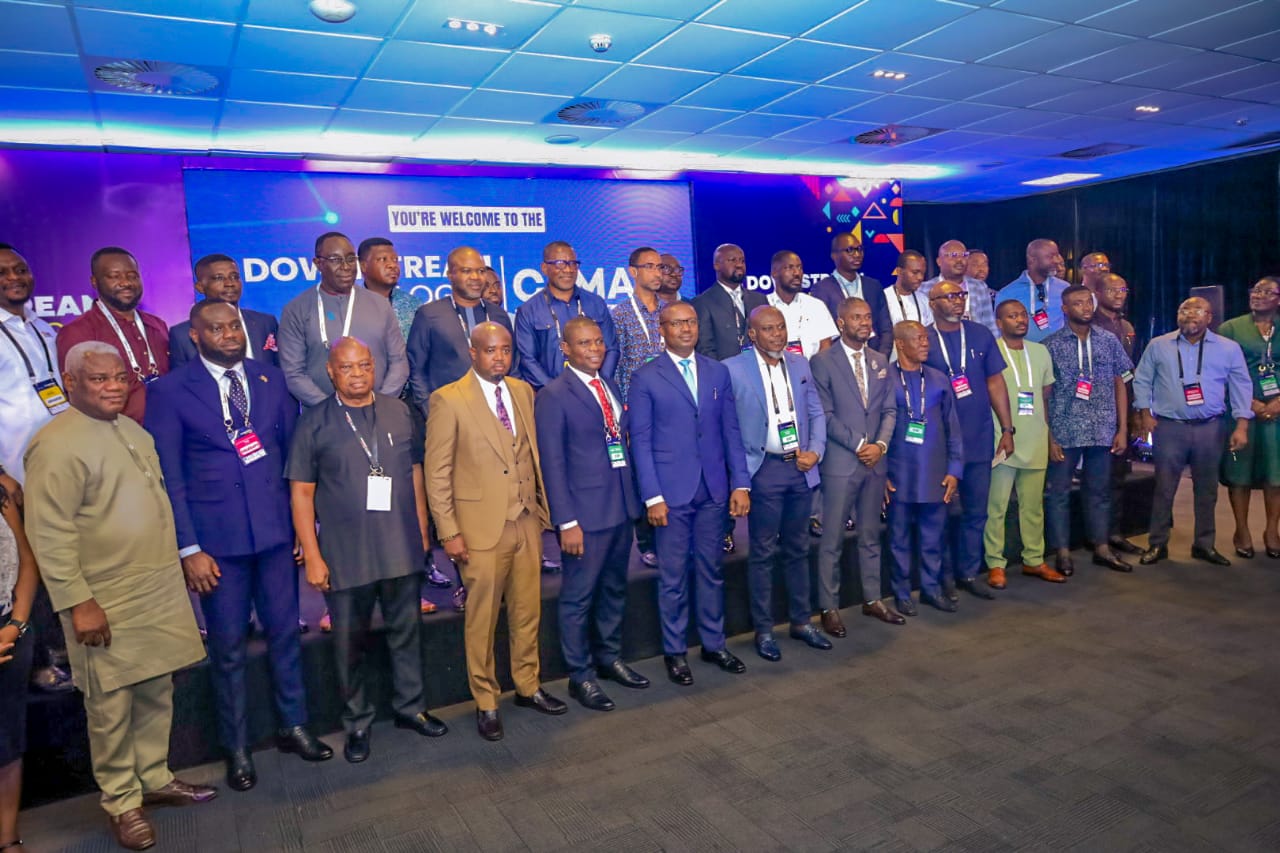
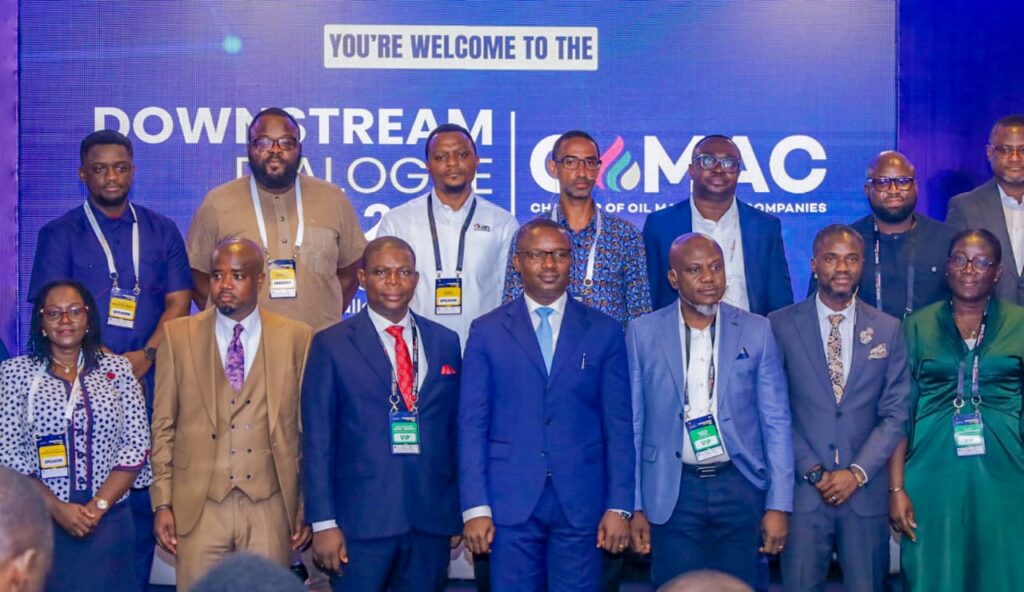
The COMAC Downstream Dialogue opened at the Royal Fiesta Hotel in Accra with an electrifying atmosphere of urgency and optimism. Under the theme Ghana’s Downstream Oil and Gas Sector: Challenges and Opportunities, the event gathered key stakeholders, including regulators, policymakers, and industry leaders intent on diagnosing the challenges hampering the sector’s growth and identifying sustainable solutions. The two-day discourse, led by some of the most influential voices in Ghana’s energy landscape, explored a wide range of issues highlighting the strategic steps necessary for industry transformation.
Setting the Tone
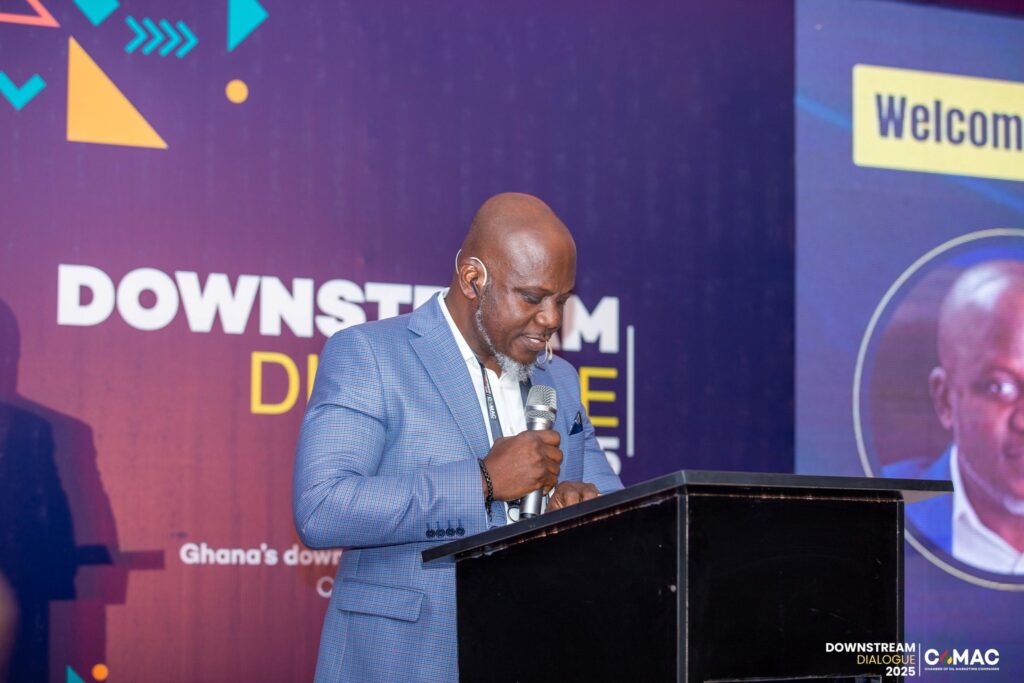
The Board Chair of COMAC, Mr. Gabriel Kumi, set the stage with an impassioned welcome address, underlining the need for proactive engagement among all industry players. He painted a picture of an industry at a crossroads, facing a complex web of regulatory bottlenecks, restrictive policies, operational hurdles, global price volatility, and financial constraints. Yet, even in the midst of these challenges, he stressed the vast opportunities for innovation, strategic partnerships, and policy recalibration to reposition Ghana’s downstream sector for a more resilient and prosperous future.
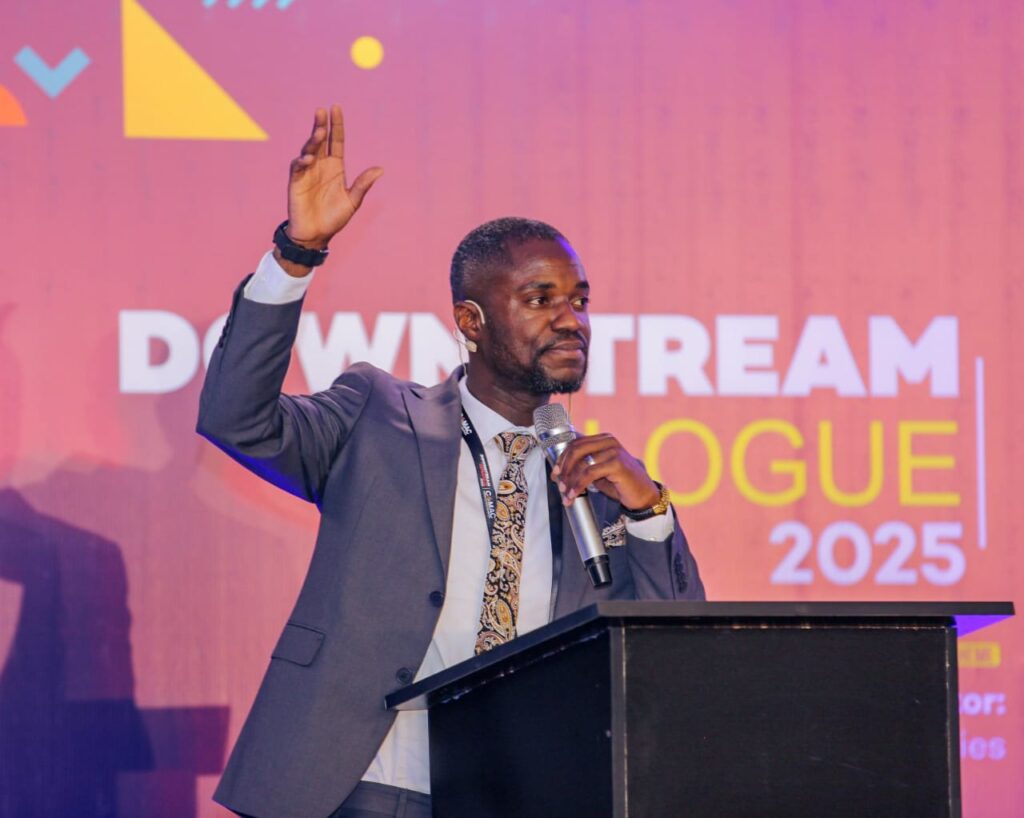
The significance of Ghana’s downstream oil and gas sector was further emphasised by the CEO of COMAC, Dr. Riverson Oppong, who provided compelling insights into its economic impact. Contributing approximately 8.5% to Ghana’s GDP in 2023, the sector plays a pivotal role in national development.
Dr. Oppong positioned the Downstream Dialogue not as a mere conference but as a strategic intervention designed to shape effective policies and reforms. He identified key focus areas for discussion, ranging from price deregulation and petroleum taxation to the implementation of the LPG cylinder recirculation model and local content expansion. Particularly notable was his emphasis on Ghana’s energy transition, advocating for increased investments in renewables and e-mobility. His vision extended to strengthening safety and environmental protections through innovative initiatives such as the “Mystery Shop” program.
A Regulatory Perspective
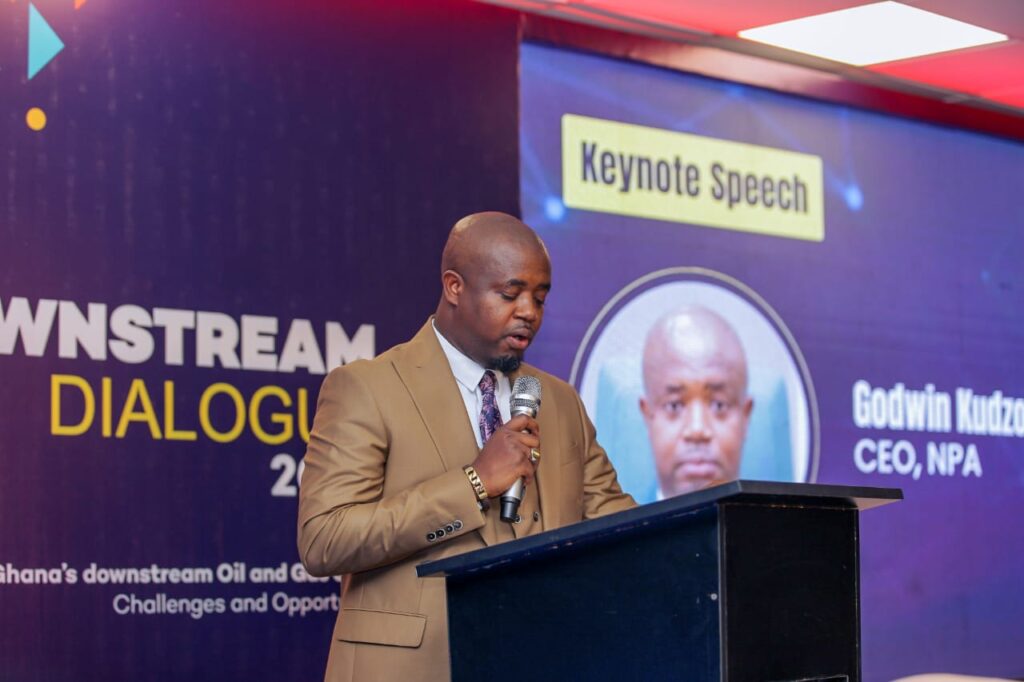
The keynote address by the CEO of the National Petroleum Authority (NPA), Mr. Godwin Kudzo Tameklo, added another layer of depth to the discussion. He chronicled the NPA’s achievements over the past two decades, emphasising the establishment of a solid regulatory framework governing pricing, supply, and infrastructure quality. With a storage capacity of 1.9 million metric tonnes, a refinery capacity of 85,000 barrels per day, and a network of over 5,000 retail outlets, Ghana’s downstream sector is robust, but not without its pressing concerns.
Among the key issues he raised was the potential cessation of the zonalisation policy, a topic that sparked intense deliberation among stakeholders. He also outlined the upcoming legislative reforms under the new NPA Act, which aims to enhance efficiency and sustainability within the sector. With Ghana’s fuel demand surpassing 4 million metric tonnes annually, he stressed the necessity of strict adherence to industry standards and the importance of the NPA’s role in shaping a viable and competitive energy market. Underpinning all these initiatives, he assured, was a commitment to supporting President John Mahama’s vision of a sustainable and affordable downstream sector.
As part of President Mahama’s 24-hour economic policy, he indicated that the National Petroleum Authority (NPA) is exploring various aspects of the downstream petroleum value chain, along with a comprehensive implementation plan to support the rollout of a 24-hour economy within the industry.
He stated that the initial phase may include deploying automated dispensers at selected petroleum retail outlets and implementing measures to ensure the continuous operation of bulk storage facilities and depots, among other initiatives.
A Ministerial Vision for Sectoral Growth
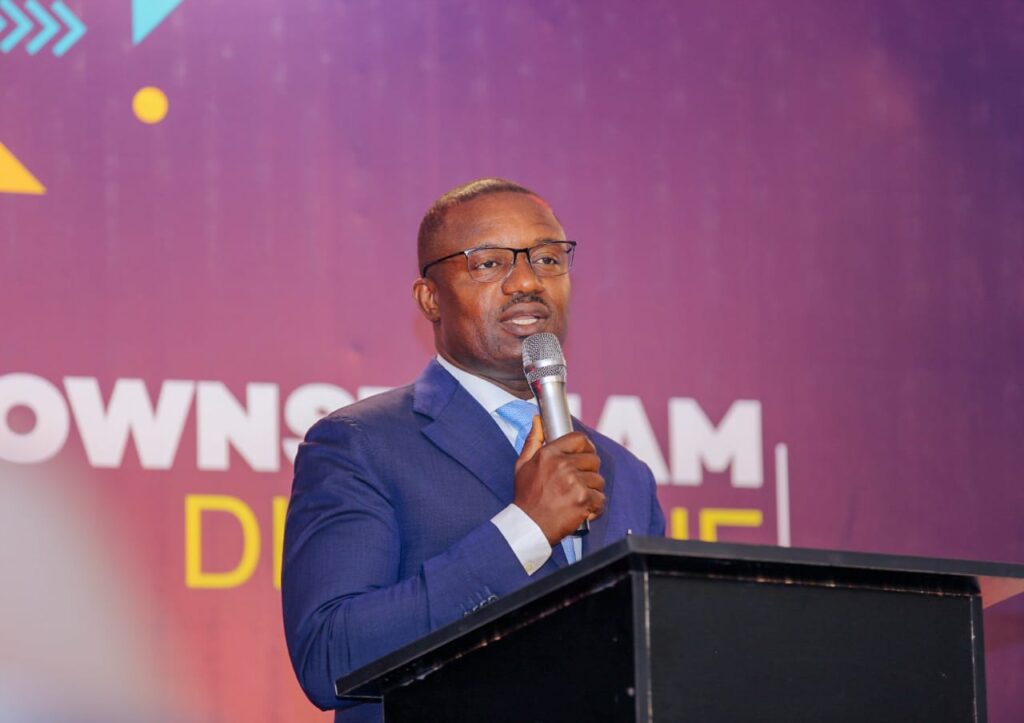
The day reached its peak when the Special Guest of Honour, Hon. Dr. John Jinapor, Minister of Energy and Green Transition, took to the stage. His address was a mix of commendation, concern, and policy direction. He lauded COMAC for convening the dialogue at such a crucial time, reiterating the government’s unwavering commitment to strengthening the oil and gas industry. He underscored the sector’s tremendous growth, with petroleum consumption surging from 1,445 kilotonnes of oil equivalent in 2000 to an impressive 4,600 kilotonnes today.
However, he did not shy away from acknowledging the structural inefficiencies, regulatory hurdles, and market constraints that persist. More importantly, he viewed these as opportunities—challenges that, if met with the right policy reforms, could catalyse growth and stability. One of his standout proposals was the formation of a Petroleum Downstream Committee, a body tasked with overseeing crucial areas such as refining, distribution, marketing, and price formation. He also stressed the need for fiscal policies that would stabilise fuel prices and insulate consumers from the volatility of global oil markets.
Dr. Jinapor’s address left no doubt that the government is keen on promoting local content participation while ensuring that Ghana does not lag in the global shift towards renewable and green energy. Energy security, he emphasised, must be pursued with a balanced mix of traditional fuels and cleaner alternatives.
The Policy Debate: What’s Next?
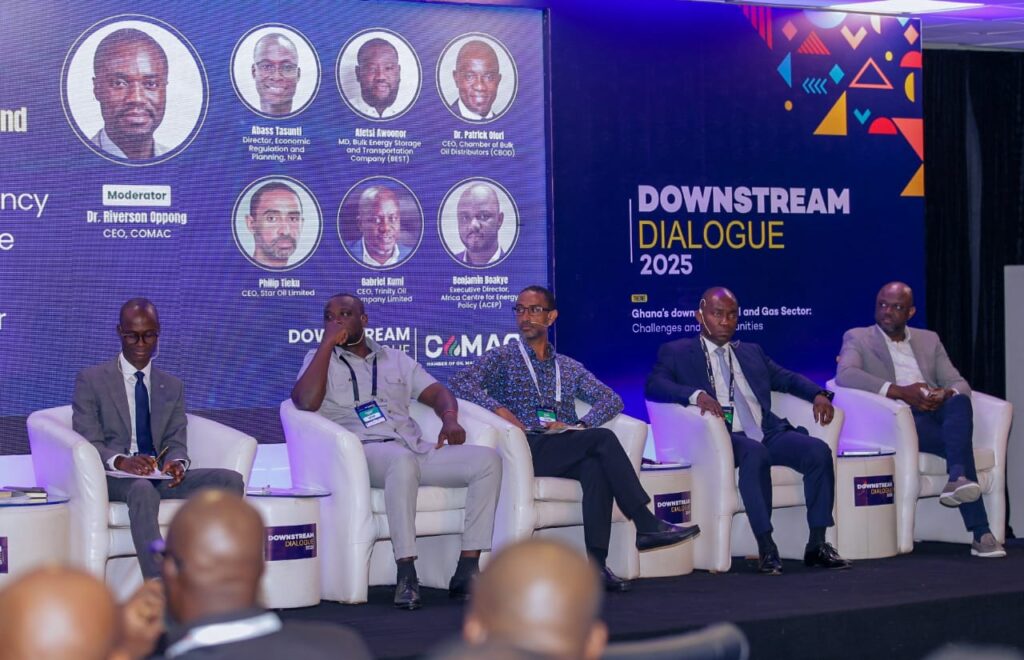
The dialogue continued with a robust panel discussion on Policy Development and Regulatory Reforms: Enhancing Efficiency and Growth in the Downstream Petroleum Sector. Moderated by Dr. Riverson Oppong, the panel featured some of the most influential industry voices, including representatives from the NPA, Bulk Energy Storage and Transportation Company (BEST), Chamber of Bulk Oil Distributors (CBOD), Star Oil Limited, Trinity Oil Company, Africa Centre for Energy Policy (ACEP), and the Ghana Revenue Authority (GRA).
A range of critical issues took center stage, including the implementation of current pricing mechanisms, challenges associated with forex accessibility for petroleum imports, and the feasibility of Ghana’s LPG cylinder recirculation model. The debate on zonalisation was particularly compelling, with strong arguments both for and against its continuation. Infrastructure deficits, taxation concerns, and private sector involvement in depot construction were also hotly debated, underscoring the urgent need for a comprehensive downstream infrastructure strategy.
Perhaps the most striking takeaway was the call for a Downstream Infrastructure Act, a policy designed to create a Downstream Infrastructure Fund aimed at addressing key investment gaps. The conversation made it evident that while Ghana has made significant strides in the sector, there is much work to be done to align policies with global best practices and ensure a stable, transparent, and investor-friendly environment.
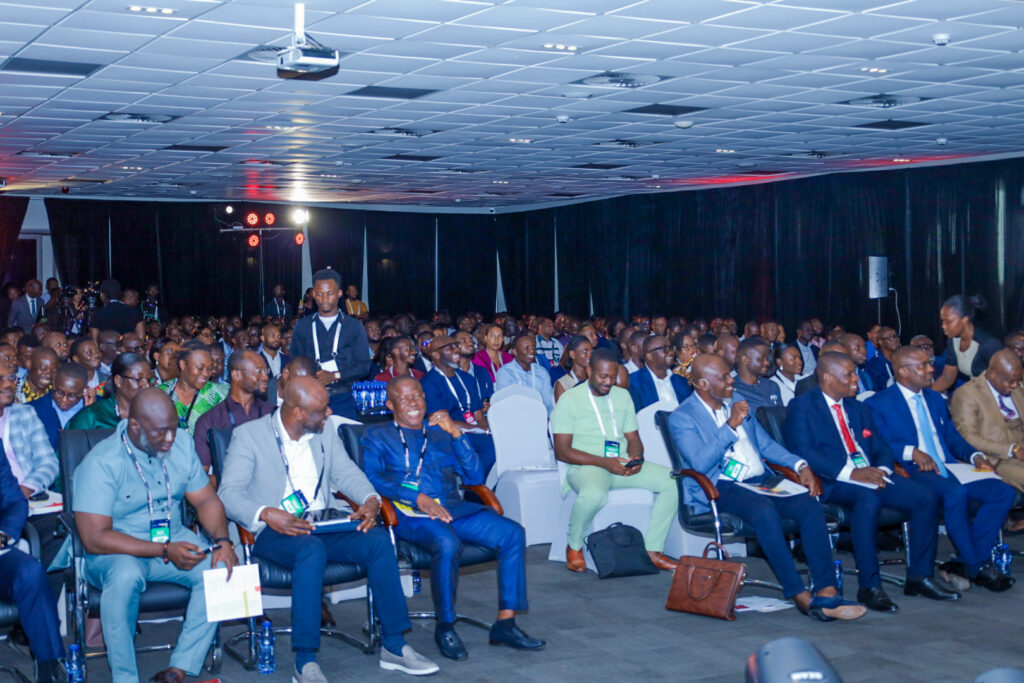
The second panel discussion at the COMAC Downstream Dialogue delved into the critical theme of promoting local content and participation in Ghana’s downstream petroleum sector. Industry experts explored the opportunities, challenges, and key actions necessary for sustainable growth and development, focusing on strategies to enhance local participation, the development of competitive local supply chains, and the impact of current regulations on indigenous businesses.
Dr. Sheila Addo of the National Petroleum Authority (NPA) provided a historical perspective, recalling the era of price regulation when the NPA controlled petroleum pricing to encourage a competitive market. She emphasised the Authority’s continued commitment to ensuring genuine Ghanaian participation in the petroleum business rather than allowing foreign companies to use local firms as mere fronts. To this end, licensing reforms and capacity-building initiatives are being introduced, ensuring that the sector transitions from a focus on quantity to quality. Notably, she revealed that out of the 200 registered oil marketing companies, only 30 remain active, highlighting the urgent need for structural changes.
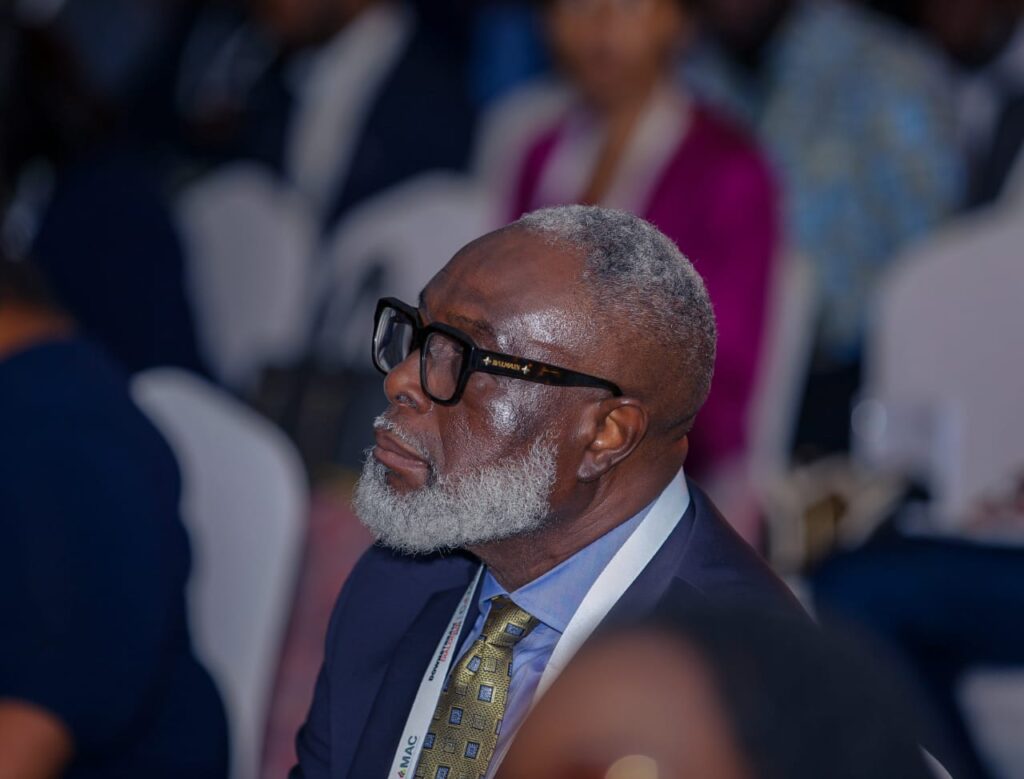
The CEO of PETROSOL Platinum Energy, Mr. Michael Bozumbil, underscored the necessity of adopting best practices and remaining attuned to industry trends. He cautioned that while many indigenous companies emerge in the petroleum sector, longevity requires a strategic approach and adaptability to evolving market conditions. Echoing this sentiment, Madam Ellen Sarfo Kantanka of TotalEnergies Ghana addressed misconceptions surrounding local content policies. She advocated for a shift towards value creation and the redefinition of local governance frameworks, allowing multinational companies to play a more supportive role in developing smaller local businesses rather than operating in silos.
The discussion also tackled regulatory hurdles, with Mr. Festus Amoyaw of Xpress Gas Limited highlighting concerns about high permit fees and arbitrary fee hikes that burden operators disproportionately. He acknowledged the government’s recent decision to reduce annual license fees but called for a broader exploration of alternative revenue generation methods that would ease the financial strain on businesses. Meanwhile, Mr. Amentor Sam Aziakar of Go Energy Company Limited reinforced the value of Ghana’s Local Content Policy, noting that capital, innovative ideas, and strong leadership remain the pillars of success in the downstream sector. He further outlined Go Energy’s commitment to human resource development and increasing female representation in leadership, even as the company grapples with regulatory clarity issues that sometimes delay cargo discharge processes.
The third panel session transitioned the conversation toward a pressing global agenda—the energy transition in the downstream petroleum sector. The discussion examined investments in renewable energy, technological innovations, e-mobility, regulatory reforms, and their implications for employment and industry resilience. The conversation made clear that the energy transition is not just a possibility but an inevitable shift that will redefine the downstream landscape.

The Managing Director of Tema Oil Refinery, Dr. Yussif Sulemana, stressed that global energy shifts will eventually impact fuel availability, making it crucial for Ghana to prepare. He argued that a fully functional local refinery is a necessary fallback option, although revitalising Tema Oil Refinery remains a challenge. He also advocated for eliminating gas flaring through the adoption of new technologies, aligning Ghana with international environmental best practices.
Dr. Joseph Wilson of the NPA outlined Ghana’s energy transition roadmap, detailing strategic initiatives such as introducing compressed natural gas (CNG) fuel, phasing out internal combustion engines by 2030, implementing a 10% biofuel blend, promoting sustainable aviation fuel, and increasing LPG adoption. He stressed that regulatory bodies are working on refining legal frameworks to accommodate these changes, including revising fuel standards to allow ethanol blending. A key focus, he revealed, is ensuring compliance with evolving sustainability standards while maintaining operational efficiency. To support this transition, the NPA is incorporating Environmental, Social, and Governance (ESG) considerations into licensing renewals, aiming to enhance Ghana’s appeal to international investors.
Madam Valerie Labi of Wahu Mobility Limited provided an entrepreneurial perspective, arguing that transitioning to sustainable energy requires substantial infrastructure investment. She shared her experience of pitching to investors, highlighting the skepticism surrounding the profitability of clean energy ventures in Africa. While other transitioning nations benefit from reliable electricity, she noted that Ghana’s position in the energy transition will be determined by its ability to strategically position itself as a key player rather than a passive follower.
The financial and economic implications of the energy transition were brought into focus by Mr. Kwaku Osei-Sarpong of RIFE Energy Ghana, who pointed out the high energy costs in West Africa. He highlighted that the cost of electricity, ranging between $0.15 and $0.20 per kilowatt-hour, severely impacts the competitiveness of refineries and oil marketing companies. To mitigate this challenge, he suggested integrating renewable energy sources into operations to reduce expenses and emissions. Additionally, he advocated for oil marketing companies to repurpose existing infrastructure, such as fuel stations, to accommodate electric vehicle charging hubs, thereby creating new revenue streams while supporting the green energy agenda.
As Day 1 came to a close, the discussions had set the stage for even deeper deliberations on the second day. With expectations high, stakeholders eagerly anticipated more pragmatic recommendations, tangible commitments, and collaborative frameworks to drive Ghana’s downstream oil and gas sector.
COMAC Downstream Dialogue Day 2: Advancing Safety, Standards, and Strategic Collaboration
The second day of the COMAC Downstream Dialogue continued with an even greater sense of urgency, determination, and collaboration, as stakeholders from across Ghana’s petroleum industry gathered to engage in crucial discussions on safety, environmental and fuel standards, and the intersection between industry and banking collaboration. Following the momentum built on the first day, this session provided a deep dive into the most pressing challenges facing the sector while offering forward-thinking solutions that could redefine its trajectory in the years to come.
Strengthening Safety, Environmental, and Fuel Standards
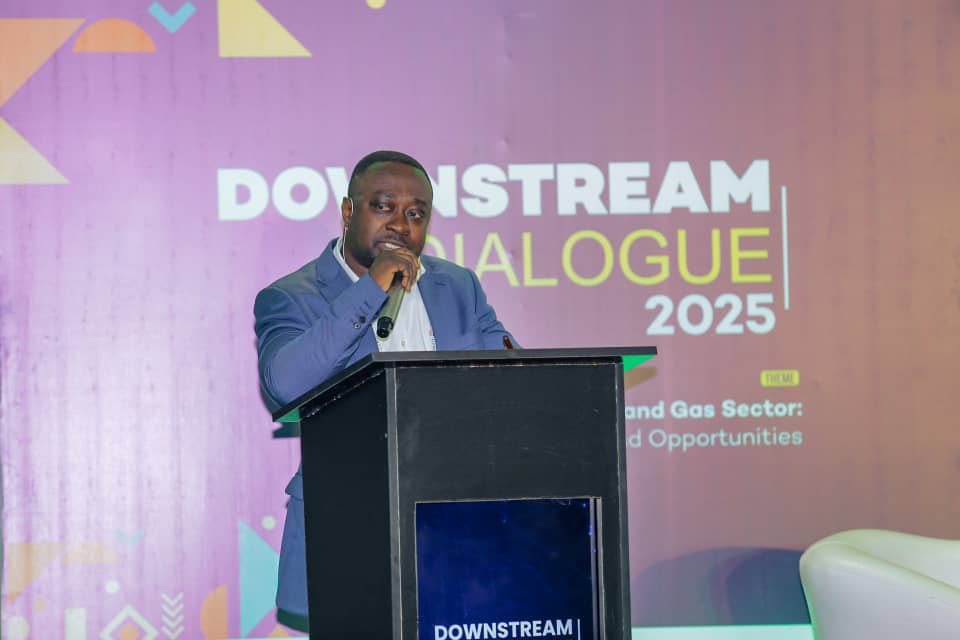
The day commenced with an intense and insightful panel discussion focused on ensuring safety, environmental, and fuel standards in Ghana’s downstream petroleum sector. Moderated by the CEO of Henos Energy Limited, Mr. Henry Osei, the session explored best practices, regulatory compliance, and risk mitigation strategies, drawing expertise from a distinguished panel of industry leaders, regulatory authorities, and safety professionals.
Mr. Setsoafia Agbenoto of the National Petroleum Authority (NPA) led the conversation by outlining the Authority’s extensive framework for collaboration with key regulators such as the Environmental Protection Agency (EPA), the Ghana Gas Authority, and the Fire Service. He emphasised the NPA’s advancements in quality assurance, highlighting the implementation of a dual marker system and real-time tracking technology, which have significantly improved compliance from 68% in 2012-2013 to an impressive 96-97% today. Yet, despite these advancements, he acknowledged the continued challenges in public education, stressing the importance of greater consumer engagement and stricter enforcement mechanisms to build confidence in fuel quality standards.
Industry representatives echoed these concerns. Mr. Joseph Kankam of Vivo Energy Ghana Limited pointed to critical gaps in the markup process and the inefficiencies of the BRV tracking system, questioning its practicality given real-world conditions such as condensation in storage tanks. Ing. Marian Thompson Fordjour of GOIL PLC raised concerns about product verification, advocating for a system where operators can confirm product integrity at the point of discharge to prevent contamination and fraud.
The discussion broadened as Nana Yaa Appiah of the EPA underscored the need for a dual focus on physical safety measures, such as spill management and waste handling, as well as social concerns, including the proper siting of petroleum retail outlets. She called for stricter enforcement of Standard Operating Procedures (SOPs), regular emergency drills, and enhanced training programs to bolster industry-wide preparedness.
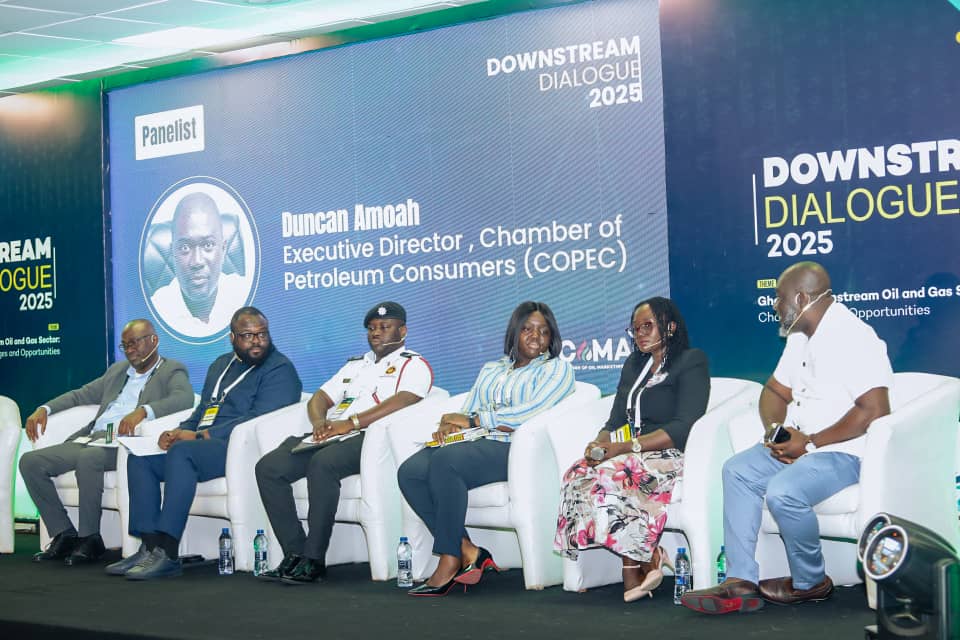
Adding a consumer advocacy perspective, Mr. Duncan Amoah of the Chamber of Petroleum Consumers (COPEC) emphasised the persistent trust issues among Ghanaian consumers, urging the NPA to introduce early detection systems at depots rather than relying solely on forecourt inspections. He argued that current sanctions often protect corporate interests over consumers, calling for a more transparent and consumer-centric regulatory approach.
From a safety standpoint, Mr. Godwin Seidu of the Ghana National Fire Service highlighted the critical evolution in fire safety management, advocating for the integration of automatic fire suppression systems, advanced firefighting technology, and detailed incident reporting frameworks. His call for enhanced emergency response infrastructure and faster permit renewals resonated strongly with industry participants.
As the panel concluded, consensus emerged on the need for a centralized database for incident reporting and near-miss analysis. Industry leaders agreed that regulatory processes must be continuously refined, with risk-based engineering solutions being strictly aligned with NPA regulations.
Industry and Banking Collaboration: Unlocking Financial Potential
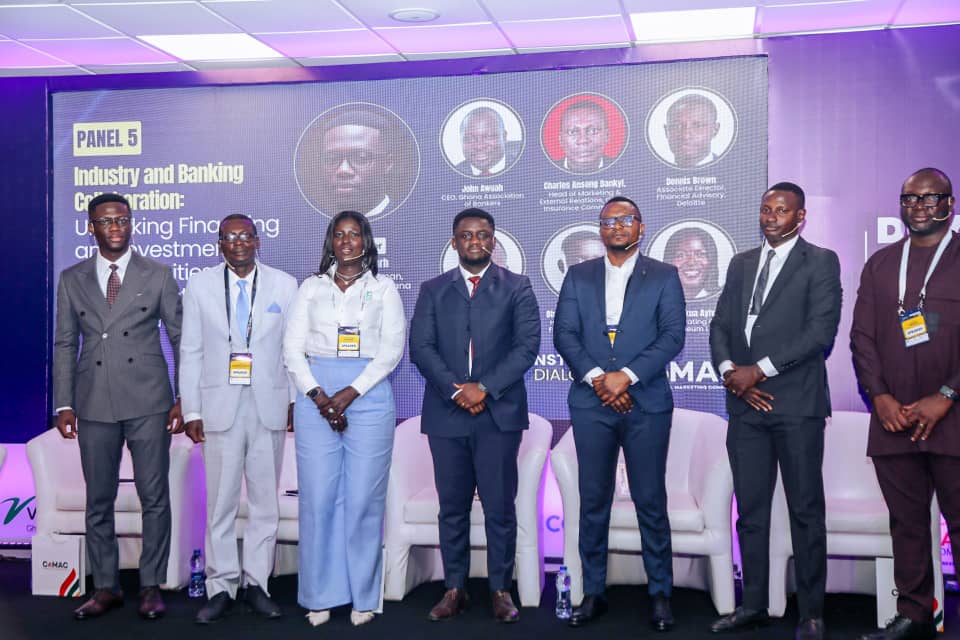
As the dialogue shifted to financial sustainability and investment opportunities, a high-level panel discussion moderated by the Executive Chairman of the Energy Chamber Ghana, Mr. Joshua B. Narh, explored ways to foster stronger partnerships between the downstream petroleum sector and Ghana’s financial institutions.
Mr. Bismark Baffour Akoto of Frimps Oil Company Limited opened the discussion with a strong emphasis on optimising operational processes through improved corporate governance and credit referencing. He noted that banks require greater insight into the unique operations of Oil Marketing Companies (OMCs) to design tailored financing solutions. He urged stakeholders to align with best practices, which, if properly implemented, could unlock substantial capital for industry expansion.
The Associate Director of Financial Advisory at Deloitte, Mr. Dennis Brown, painted a promising picture of the future, pointing out that banks are becoming more intentional in their lending approaches. However, he stressed that service providers must remain “fund-ready” by maintaining strong financial reporting structures and pursuing strategic partnerships that enhance credibility in the financial market.
From a banking perspective, Mr. John Awuah of the Ghana Association of Bankers reinforced the notion that financing success hinges on a shift in mindset. He called for stronger leadership within OMCs, better investment in human capital, and well-structured organisations that can attract financial support. He argued that the industry must move beyond outdated business models and embrace innovation to remain competitive.
Madam Nana Akua Ayivor of Zen Petroleum Limited brought a critical regulatory angle into the conversation, challenging existing frameworks and arguing that regulators should focus on streamlining their responsibilities. She advocated for a shift away from a sole proprietorship model toward collaborative partnerships, emphasizing that consolidation, rather than continuous licensing, would enhance efficiency and market stability. She further called for stronger regulatory involvement from the NPA in reshaping public perception and industry best practices.
A Roadmap for the Future

The event concluded with powerful closing remarks from key figures in the sector. The CEO of COMAC, Dr. Riverson Oppong, passionately urged OMCs to facilitate share acquisitions by interested investors, advocating for risk-sharing as the most effective pathway to financial resilience.
Following this, the Board Chair of COMAC, Mr. Gabriel Kumi, delivered an inspiring address, recognising the collective efforts of industry leaders, regulators, and stakeholders in shaping the discussions. He announced that a comprehensive white paper capturing the key insights and proposed solutions from the dialogue would be distributed to regulators and stakeholders, serving as a guiding document for policy and industry action.
A New Era of Industry Collaboration
As the curtains closed on the 2025 COMAC Downstream Dialogue, it was evident that the event had transcended traditional industry discussions, evolving into a strategic blueprint for the future. Stakeholders left with a renewed sense of purpose and a commitment to elevating Ghana’s downstream petroleum sector to global standards.
The discussions have set the stage for transformative reforms, and anticipation is already building for the 2026 edition, where the industry will reconvene to assess progress, confront new challenges, and drive further innovation.
Source: Energy Ghana

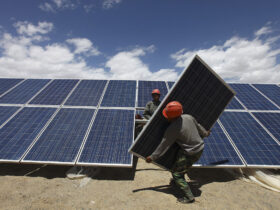

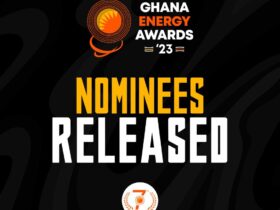


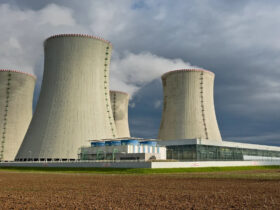
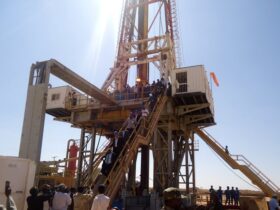

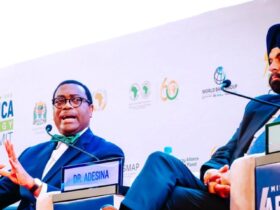

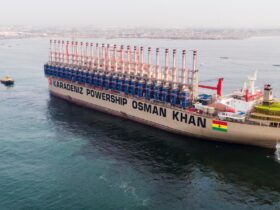


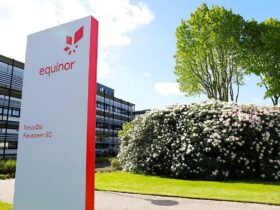
Leave a Reply